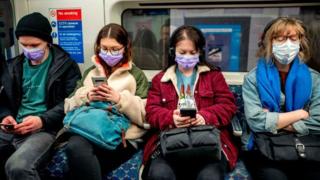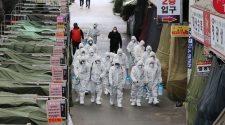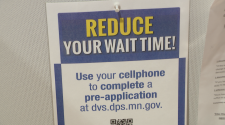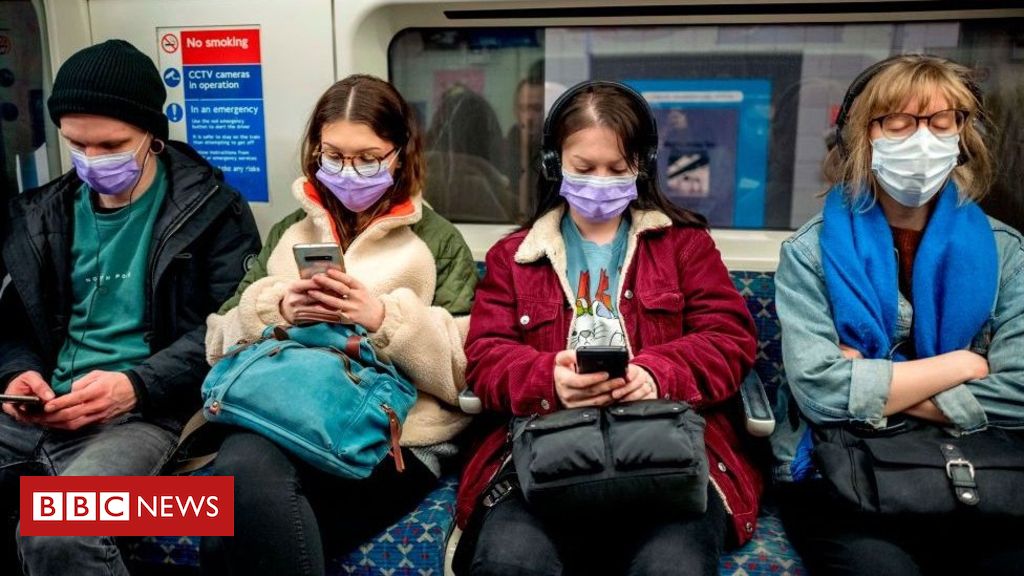
Image copyright
Getty Images
While lockdown broke the links via which the coronavirus was transmitted, as it is relaxed we all become participants in a vast observational experiment, scientists say.
Relaxing restrictions too quickly in this “experimental phase” could cause a “sizeable, second epidemic wave”.
Emerging from lockdown requires a “cautious, measured approach”.
And social distancing and working from home are likely to be features of our lives until a vaccine is available.
“We need to lift only measures that we consider to be safe and then monitor them very carefully,” Dr Mike Tildesley, who led the University of Warwick study, told BBC News.
“In a sense, as we go through this phase of learning, we’re guinea pigs.
“But as that phase progresses, we’ll improve our understanding of how effective these measures are.”
Image copyright
PA Media
For schools in particular, this cautious, stepwise approach – and learning from every measure taken – will be “extremely important”, he said.
It “needs to be gradual”.
“And obviously there is an awful lot of worry from parents and teachers.”
In the short term, any relaxation of social distancing measures would be likely to trigger the second peak every country affected was trying to avoid, Dr Tildesley said.
He recommended:
- reopening non-essential shops and businesses only where social-distancing measures can be put in place
- those who can working at home for the foreseeable future
- possible longer-term shielding for older people, who are known to be more vulnerable to severe disease
And if there was any sign of the infection rate increasing, control measures would need to be reintroduced quickly.
Prof Daniela De Angelis, from the University of Cambridge, said: “With lockdown, we’ve stopped interaction, so we’ve stopped transmission.
“As you lift it, you recreate some of those links in the network.
“That’s exactly the mechanism through which infection spreads.
“So what we need to work out is how much more connected people can get before we see the epidemic spike again.”
Prof Azra Ghani, from Imperial College London, told BBC News: “A 20-30% increase in people’s contacts” would be the maximum.
“A vaccine really is the long-term way out of this,” she told BBC News.
“And in the meantime, we need as many people as possible to adapt their behaviour.”
‘Daily life’
If this were a real experiment, Prof Gahni said, scientists would have control.
“They would fine-tune things.
“But this is real life.
“It’s about people’s lives and livelihoods.
“And it involves people’s behaviour.
“There has to be a balance of the risk [from the disease] and of living daily life.
“We can get there, as long as people behave in a socially responsible way.”
















